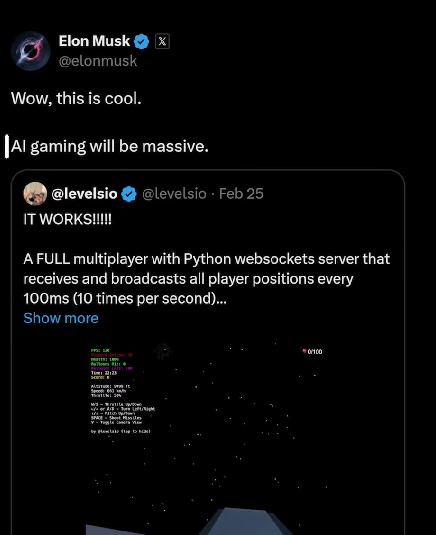AI Built This Flight Sim Solo!
 Sanket Kalekar
Sanket KalekarIndie game development is changing fast, and one developer just proved how powerful AI has become in coding. Peter, an indie hacker with no prior experience in building flight simulators, managed to create a fully functional multiplayer flying game in just a few hours. How? By leveraging AI tools like Cursor and large language models (LLMs) such as Grog.
Instead of using a traditional game engine, Peter built the entire game with HTML, vanilla JavaScript, and Three.js for 3D graphics. The back-end runs on Python WebSockets, broadcasting all player positions 10 times per second to maintain real-time multiplayer synchronization. Every red plane in the game represents another player flying in real time. No Unity, no Unreal Engine—just AI-assisted coding and lightweight web technologies.
From Experiment to Business
What started as a technical experiment quickly turned into a real business. Peter added a purchase option where players could buy an F-16 jet for $29.99. To his surprise, within days, he sold nine jets and even landed an ad deal for $1,000. The project went from an AI-powered prototype to a revenue-generating product almost overnight.

A Shift in Game Development
Peter's story is part of a broader trend—one that even caught Elon Musk's attention. AI-assisted game development is lowering the barriers for creators, enabling people with ideas but limited coding knowledge to bring projects to life in record time. Critics might dismiss these early AI-generated games as simple, but they represent the first step toward something far bigger. As AI improves, we’ll see rapid advancements in rendering, physics, and interactivity, transforming basic prototypes into immersive, high-quality experiences
.
We're entering an era where anyone with a vision can build interactive experiences without needing years of coding expertise. The ability to prototype and launch games in hours instead of months or years is shifting the landscape of digital creation. As AI tools become more sophisticated, expect to see a wave of indie developers pushing the boundaries of what’s possible—turning quick experiments into thriving businesses.
The question isn’t whether AI will change game development—it already is. The real question is: what will creators build next?
Subscribe to my newsletter
Read articles from Sanket Kalekar directly inside your inbox. Subscribe to the newsletter, and don't miss out.
Written by
